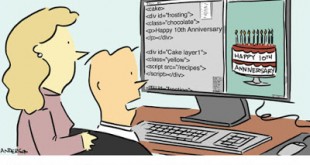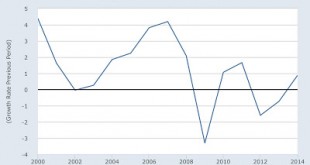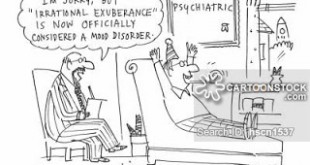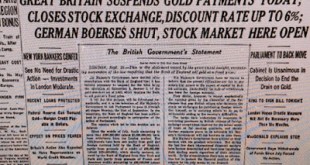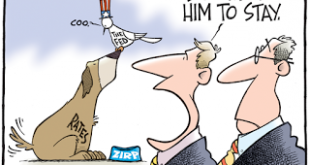Richard Clarida gave an interview (right at the beginning of the podcast) on why the Fed should increase the rate of interest. He also said that the Fed can affect inflation, which, he correctly points out, is denied by several economists. However, the degree of confusion on this subject is significant, and modern monetary theory, and its implications for central banking behavior, is, in part, responsible for that.The conventional wisdom on what central banks can do (and one can think of...
Read More »What Tom Palley Got Right: 10 year edition
By Tom PalleyTen years ago (September 2005) I launched my website. To mark this anniversary, here are ten postings that I think got it right. Many of them are included in my book, The Economic Crisis: Notes From The Underground (2012).1. Keynesianism: what it is and why it still matters (September 18, 2005). My first post. What was intellectually unfashionable back then is now in.2. The Questionable Legacy of Alan Greenspan (October 16, 2005). Raining on the Maestro’s parade was not...
Read More »Grenoble Winter School– December 7-9
Material well being and morality
Wall Street Journal's logic. They say: "In the Americas 'thousands of persons are led to travel north in search of a better life for themselves and for their loved ones, in search of greater opportunities,' the pope said. 'Is this not what we want for our own children? We must not be taken aback by their numbers, but rather view them as persons, seeing their faces and listening to their stories, trying to respond as best we can to their situation. To respond in a way which is always humane,...
Read More »What’s in an index? Heterodox and Developing Country Journals in Economics
Nope not about index numbers. About Rankings. Below a list of several heterodox and mainstream journals as ranked by the Thomson-Reuters citation index (the Web of Science-Social Science Citation Index, SSCI) in the last citation report. As it can be seen heterodox journals have a considerably lower impact factor than mainstream journals. The leading heterodox journal in my list* (the Cambridge Journal of Economics) is comparable to a lower ranked mainstream journal (certainly not the bottom...
Read More »How is austerity working for you?
So and old post was getting lots of hits. Turns out some guy linked to it a while ago. Not sure why this happened only now, after 2 years. If Google Translate is accurate (my experience is that it's not always the case) this is what he says: "Social geographer Ewald Engelen is a Keynesian. Throw money at the economy and everything will be fine, is his theory. He fulminates and tweets all day that the government must spend. This morning Ewald put a link to the Naked Keynesianism, a site that...
Read More »Robert Shiller on media misinformation and monetary policy
Yesterday I listened to this interview on the radio (Bloomberg's Surveillance) with Robert Shiller (you can jump to the last 9 minutes, that's when Shiller starts talking). He is for fiscal stimulus to get us out of the funk, but for higher rates to deal with outline asset prices. No discussion of using regulation to preclude speculation and bubbles in asset markets.PS: The piece cited at the beginning of the interview is this one.
Read More »The end of the Gold Standard
NYTimes September 21, 1931 84 years ago Britain left the Gold Standard. Some thought it was the end of Western civilization. Keynes thought it was the beginning of the end of the Depression, at least in Great Britain. He was certainly happy. He said: "There are few Englishmen who do not rejoice at the breaking of our gold fetters. We feel that we have at last a free hand to do what is sensible. The romantic phase is over, and we can begin to discuss realistically what policy is for the...
Read More »On the Fed’s decision at the Rick Smith Show
[embedded content]
Read More »Fed keeps interest rate close to zero
The Fed has left the interest rate unchanged... for now. One dissident vote for raising the rate now. The main reason according to the press release is that: "Recent global economic and financial developments may restrain economic activity somewhat and are likely to put further downward pressure on inflation in the near term." Pressures for a hike in October or December will increase significantly, even if the official position is vague enough. They say: "The Committee anticipates that it...
Read More » Naked Keynesianism
Naked Keynesianism

